This generation of single-player gamers are using cloud computers to play Black Myth: Wukong
![]() 08/30 2024
08/30 2024
![]() 516
516
Text | Smart Relativity
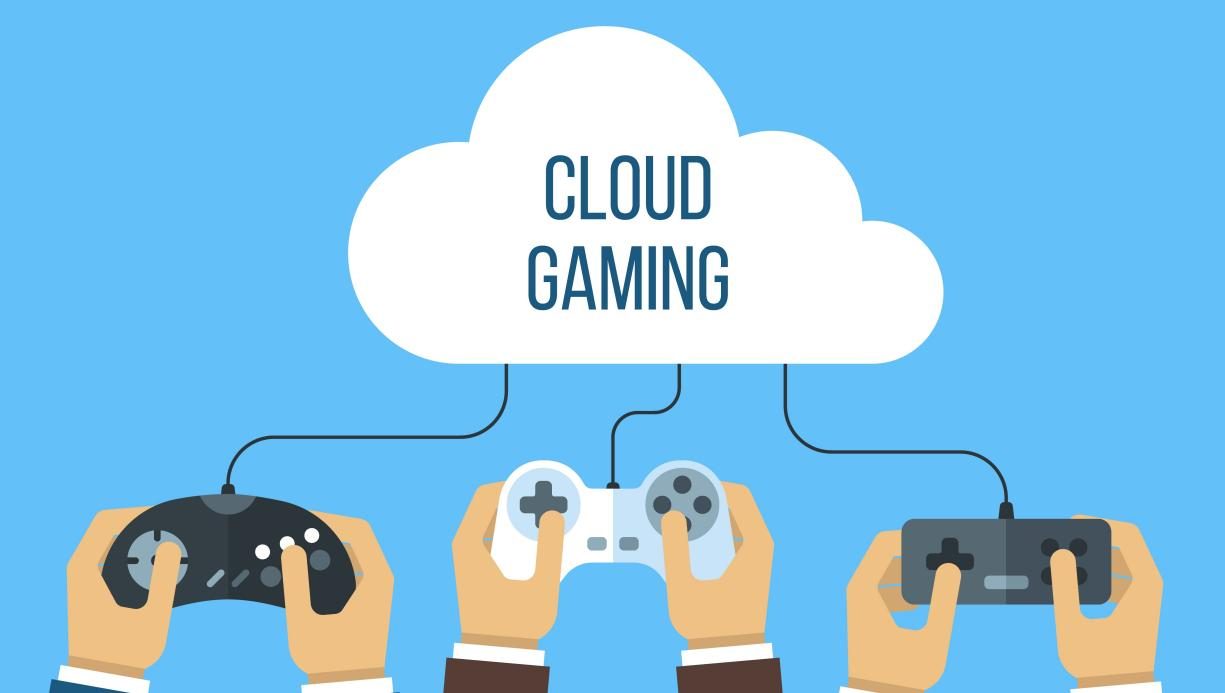
After work on Friday, I logged in to play games and suddenly discovered that a friend I hadn't seen online for half a year due to their computer's low configuration was now online?
'Wow, finally got a new computer?!' I messaged.
'Nope, can't afford it. Good computers that can run this game aren't cheap.'
'Did you switch jobs? Working at an internet cafe now?' Last I heard, he worked in construction and was constantly on the move with projects, spending his days holed up in construction sites in the suburbs.
Although he was a bit stingy, his constant job-related travel was also a major reason why he couldn't afford to buy a gaming computer.
'Nope, same old stuff.'
'How are you playing then?'
'I got a cloud computer. Tried it out, and it's not bad. Can finally scratch my gaming itch.'
A cloud computer can run a large-scale online game requiring a 4070-level graphics card? Although cloud computers are not exactly rare nowadays, I never expected their performance to be this impressive!?
You wouldn't know until you see it. Even the newly released Black Myth: Wukong, a game known for being graphics-intensive, is already available on platforms like NetEase Cloud Gaming. As long as your internet speed is fast enough, even an old computer can be a 'chosen one.'

I thought the limiting factor for me to become a 'chosen one' was my computer and graphics card, but it turns out it was my internet speed.
This generation of cloud computer users has already reached the next level.
While the general public still thinks of cloud computers as only good for browsing the web and editing documents, this generation of internet users is already playing online games on cloud computers, cranking up the graphics settings to the max without any lag, making the experience truly satisfying.

Image source @momo
'This looks way better than the over 10,000 yuan computer I bought 4 years ago. I don't even dare to set the graphics to the highest setting, and I have to turn off some effects even when playing Uncharted Waters Online. Medium settings are good enough for me.' Commented a Sword Art Online player.

Image source @ScubaDivingAtSea
This experience is not unique. In discussions about Sword Art Online, many players have already started using cloud computers to play. Since cloud computers don't require a powerful host computer, some players are even showing off their amazing experience of playing Sword Art Online smoothly on a 'tablet + keyboard and mouse' setup.
No matter when and where, as long as you have a device and a decent internet connection, you can scratch your gaming itch. 'The key to cloud technology is internet speed. As long as that's good, you're set. In terms of performance, it's hard to find a device that can't run it these days.'

Image source @ScubaDivingAtSea
Today, the community of cloud computer gamers is rapidly expanding. They're not just playing traditional online games like Sword Art Online but also competitive multiplayer games like League of Legends, where a significant number of cloud computer users are active.
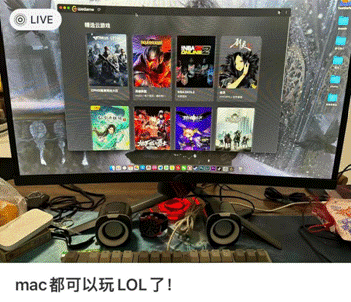
Image source @FatGirlNextDoor
'You never know what your teammates are playing on.' Games like League of Legends and Overwatch put a heavy strain on a machine's performance and the player's skills. But based on current feedback, cloud computers seem to be fully capable of handling these low-latency games.
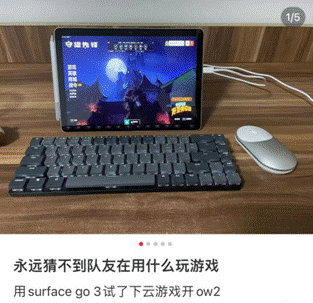
Image source @Rnzer.Sen
Beyond gaming, as cloud computer performance improves, more and more users are starting to use them for work, such as video editing and content creation. Cloud computers are gradually taking over many tasks traditionally done on traditional PCs.

Image source @HuiXinDIY
Cloud computer vendors have also realized this and are increasingly focusing on enhancing the user experience. For example, China Telecom's Cloud Computer adopts multiple encryption algorithms to ensure user data security, giving users peace of mind when working on the go.
In reality, whether it's cloud computers or cloud gaming platforms, they are all based on cloud server technology, leveraging remote computing resources to provide users with an experience similar to traditional PCs.
As cloud applications evolve and become more prevalent, cloud server vendors differentiate their offerings by targeting specific customer segments. For example, there are cloud gaming platforms for gamers, cloud computers for office workers, and cloud desktops.
Therefore, the popularity of cloud computers and cloud gaming is essentially a reflection of the maturity and widespread adoption of cloud servers.
From being overlooked to becoming increasingly popular, who changed the fate of cloud computers?
'I never expected so many people to use cloud computers for gaming and work. When cloud computers first came out, I thought they were pretty useless. Why would anyone install a cloud computer on their own machine? It's like putting on pants and then farting!'
In fact, as users delve deeper into the experience, they gradually discover the advantages of cloud computers, especially in terms of cost-effectiveness - old, outdated machines can run large-scale online games, and portable tablets can suddenly be upgraded to work computers, ready for work at any time.

Image source @XinPencil
For users, portability and affordability are the obvious advantages of cloud computers. In the post-mobile internet era, where work locations are increasingly unfixed and mobile working is booming, cloud computers are naturally becoming more popular.
Beyond that, the fundamental reason for the growing popularity of cloud computers lies in their improved performance. For example, China Telecom's Cloud Computer employs unique technologies to enhance transmission efficiency, such as ensuring fast and reliable data transmission based on TCP/IP protocols, or leveraging the high bandwidth and low latency of cloud computing platforms, along with optimized data compression algorithms, to reduce data transmission time and costs.
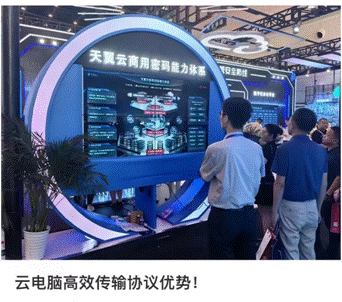
Image source Internet
'I remember trying out a cloud computer from some brand a few years ago, and it was laggy. I never expected it to be this smooth now. Pretty tempting.'
ZTE's Cloud Computer uses its proprietary CAG cloud access gateway, breaking through VPN tunnel restrictions, unifying external port access, reducing the number of public network ports, and blocking other business forwarding requests. This can reduce bandwidth requirements by 50%, making external network access faster and more stable, effectively improving the user experience of cloud computer users.
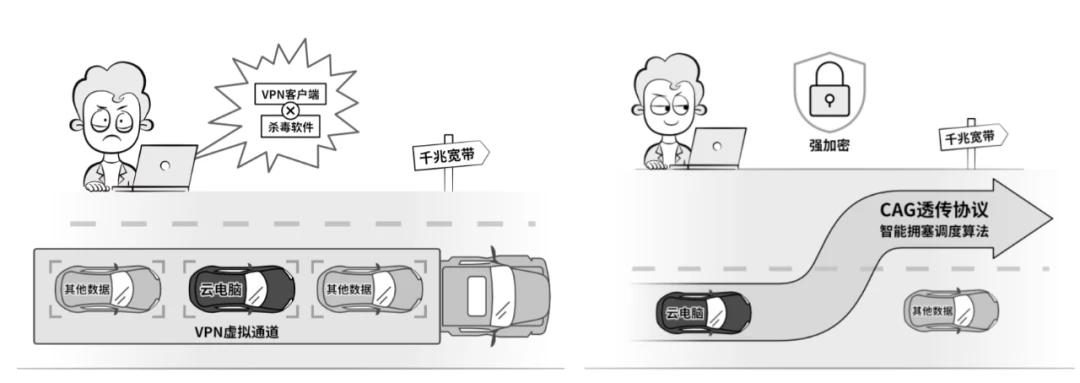
Image source Internet
As technology advances, there are increasingly more cloud computer options available to users, whether they are gamers, office workers, individuals, or businesses.
Today, China Telecom's Cloud Computer 2.0 offers a wider range of product specifications, including memory-enhanced and compute-enhanced models, covering everything from 2 cores to 64 cores. Users have more choices and can even find specific cloud computer services for tasks like image processing, video rendering, and big data analysis.
It can be predicted that in the coming years, cloud computers are destined to become an important choice for more people's gaming and work needs. The popularity of cloud computers in the gaming community is no coincidence.
Will the next generation of internet users be called 'Cloud Natives'?
Generation Z, born between 1995 and 2009, is known as the 'Digital Natives,' growing up with the internet and accustomed to thinking and acting with an internet mindset.
Today, as cloud computing rises in popularity, the concept of cloud-native is becoming increasingly ingrained. More and more services individuals rely on are moving to the cloud, including cloud storage, cloud gaming, and cloud computers, reshaping the experience and product mindset of the new generation of internet users.
'In recent years, cloud computers have made significant progress in terms of technical maturity, service optimization, application scenario expansion, and user experience improvement. These advancements have not only enhanced the performance and reliability of cloud computers but also brought more convenience and cost-effectiveness to users.'

Image source @Unknownzoe
Software services, hardware carriers, storage drives, and more are all moving to the cloud, making the new generation of internet users inevitably become the 'Cloud Natives,' embarking on their digital journey as natives of the cloud.
At this moment, the rise and prevalence of cloud computers may very well signify the dawn of a new era.
*All images in this article are sourced from the internet







